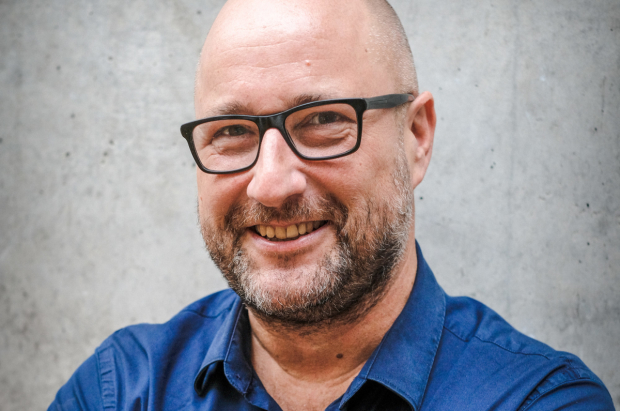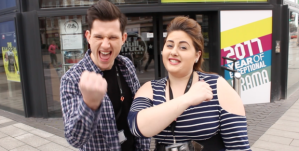Mark Babych: Hull needs to shout about its achievements
As ”The Hypocrite” continues its sold-out run at Hull Truck, artistic director Mark Babych looks at what makes the city so special

© Andrew Billington
This year is a big year for Hull and for Hull Truck too. How are you feeling?
It's the busiest that we've ever been. The rhythm of the coming year feels really exciting but there is no doubt that The Hypocrite and Hull City of Culture is the biggest thing we've ever undertaken. We have been able to do a whole year of almost exclusively new work, which I don't think has happened before, especially not in a theatre of this size. It has been tough, and a lot of hard work, but the rewards are fantastic.
The Hypocrite is a very Hull story, how did it come about?
Richard Bean and I had a conversation about a play he was thinking of in this very theatre, the day it was announced we won the bid for UK City of Culture. Richard had been thinking about the play for a very long time, but in a different form. He calls it the pub story of the English Civil War. Richard had an idea to stage a version of the story in the plotting room, which was the Governor's House, which is now a pub called the White Hart in the old town in Hull, where the spark of the war was said to have happened. Richard is from Hull originally, it has a load of Hull actors in it.
And it's been popular with the locals?
The majority of the audience were from Hull post codes which is really great. It's a co-production with the RSC and from the off they were really clear that they wanted this to be a true collaboration and not just rehearse it in London or Stratford-upon-Avon and come up here, dump it and go away again. The whole process has been about making sure the show connects deeper with the place in which you are making it.
You moved to Hull three years ago, how do you think it has changed since then?
The city has grown in confidence. One of the things that came out when we were planning for the City of Culture bid was that Hull has always had a vibrant artistic scene but not many people from outside the city knew about it. Hull needs to shout about its achievements. The city had exposed itself to unfair accusations of being one of the 'world's worst places to live' and several other negative perceptions and that's just so unjustified. It was the most bombed city after WWII and the decimation of the fishing industry has really affected the place, so over the years since I've been here we've spent a long time telling those stories.
You're directing a new play in the coming year…
Mighty Atoms is the third part of a trilogy of work I've made here called The Hull Trilogy. The trilogy is about key events in the city's history that have somehow marked it, changed it, influenced it, damaged it and then how the city has recovered. Each one steps further forward in time, so we started with the Blitz, then the death of the fishing industry. Mighty Atoms is set in 2017 and focuses on a group of women who come together in a pub on a fictional estate in Hull.
What is 'mighty atom' a reference to?
It was the nickname of Barbara Buttrick, who is a world champion boxer at four foot eleven and was from Hull. It's a reference to her, but also the city of Hull itself. The show looks at a lineage of women in Hull who have shaped the backbone of the city and the women who are taking inspiration from their energy.
What's your favourite thing about Hull?
I love that it is coastal, and I love the sense of the big sky and the sense of freedom. The people are really friendly and they won't take any bullshit. They are grounded.














